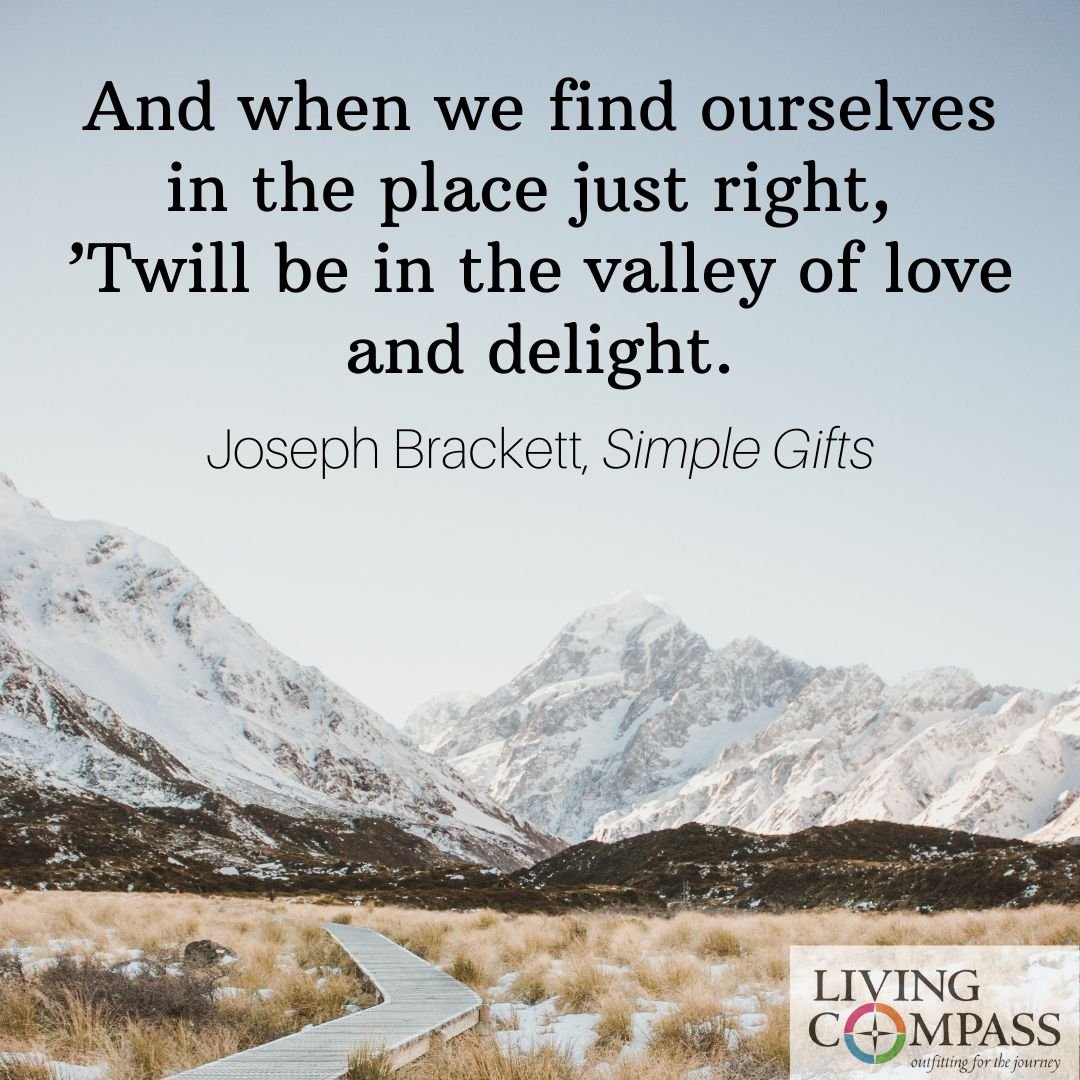Receiving the Gift
Christmas Day
Reflection By Robbin, Jan, and Scott
How silently, how silently the wondrous gift is given.
- Phillips Brooks, O Little Town of Bethlehem
This past week we have been reflecting on the wisdom found in the song Simple Gifts. And today, we celebrate the most precious gift of all, the gift of God becoming incarnate in the birth of Jesus.
May we discover a deep desire in heart, soul, strength, and mind to make room in the inn of our lives to receive the gift of God’s love made manifest in Jesus, a gift beyond measure. May we seek balance by having the courage to live a simpler, less distracted life. May we seek God’s blessing and guidance so that what we choose to let go of and what we choose to hold onto reflects and honors the life God has invited us to fully and freely live. May we know joy in the depths of our being and a peace that overflows the banks of our minds and hearts. And may we lean on and into our faith more intentionally, trusting it will lead us toward a life of sacred, authentic simplicity and love. May we come to know and trust that when we delight in God’s gifts, we delight God.
And now, having once again received the gift of Jesus’ very presence in our lives, completely and with no reservations, may we share it generously with others.
It has been an honor and a gift for us to walk this journey through Advent to Christmas with you.
We wish you a holy Christmas filled with simplicity, balance, peace, joy, and love.



















